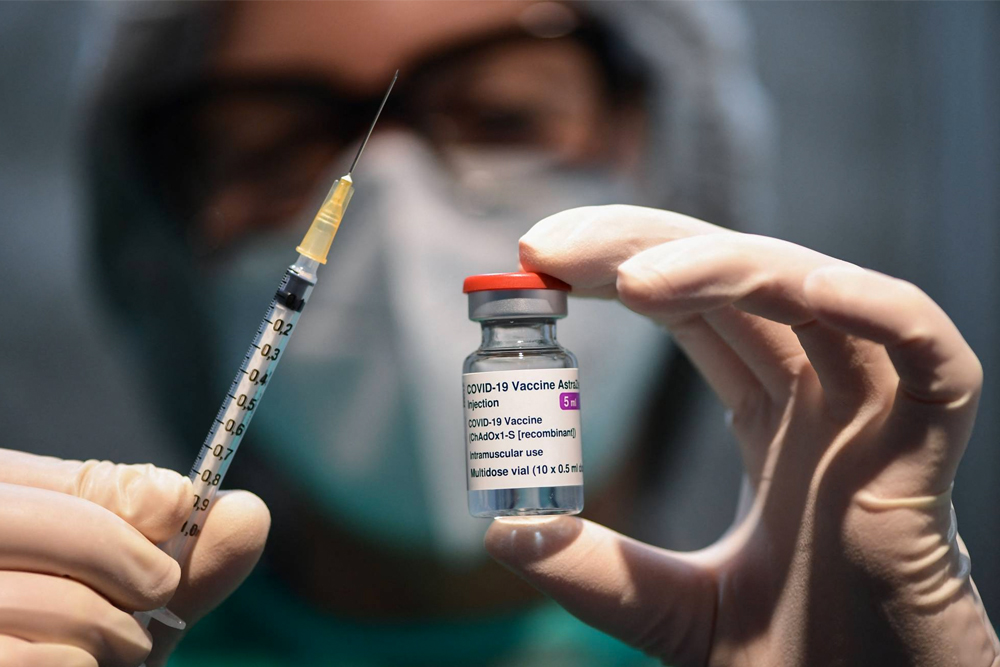
The EU's medicines regulator announced on April 7 that blood clots should be listed as a rare side effect of the AstraZeneca vaccine but the benefits of the jab continue to outweigh risks, as several countries battle fresh virus surges amid vaccine shortfalls.
A number of nations have suspended the use of AstraZeneca's vaccine for younger populations after it was earlier banned outright in several places over blood clot scares among younger people.
The back-and-forth over the shot comes as countries from Germany to Ukraine and India face new waves of infections and deaths from the virus that has now killed more than 2.8 million people globally.
Overall benefits of Oxford-AstraZeneca vaccine in preventing Covid outweigh the risks of side effects, EU medicine regulator sayshttps://t.co/pJPMMWCSvI pic.twitter.com/AsBYA77D8D
— BBC Breaking News (@BBCBreaking) April 7, 2021
Governments are scrambling to secure much-needed vaccine doses, with Australia the latest nation to complain of shortages that it blamed on EU export controls.
The European Medicines Agency (EMA) said Wednesday that blood clots were a "very rare" risk, encouraging countries to continue its use. "EMA's safety committee has concluded today that unusual blood clots with low blood platelets should be listed as very rare side effects" of the shot, the agency said in a statement.
The announcement came after its safety committee examined reports of blood clots, but EMA chief Emer Cooke said no particular risk factor had been identified but the clots could be linked to an immune response to the vaccine.
"Specific risk factors such as age, gender or medical history have not been able to be confirmed, as the rare events are seen in all ages," she told a news conference.
"The benefits of the AstraZeneca vaccine in preventing Covid-19 overall outweigh the risk of side effects," she added. "It is saving lives."
Canada, France, Germany and the Netherlands are among several countries that are not recommending the shot for younger people, although the World Health Organization insists the benefits of the jab largely outweigh the risks.
#GoodToKnow: Saudi Arabia administered 4.9 million doses of the COVID-19 vaccine so far to its citizens and residents, with a daily rate of around 118,000. pic.twitter.com/9YPaBT5QRo
— About Her (@AboutHerOFCL) April 4, 2021
The controversy surrounding the jab has marred a global vaccine rollout that governments hope will help countries emerge from a pandemic that has ravaged the global economy and subjected much of humanity to some form of confinement.
In Germany, Chancellor Angela Merkel expressed support for a snap lockdown to stem rising cases, after decentralised measures failed to quell outbreaks.
The patchwork of rules across Germany's 16 states "is not contributing to security and acceptance at the moment", her spokeswoman Ulrike Demmer said.
Hard-hit France imposed tighter measures this week, while Ukraine on Wednesday reported record new deaths and hospitalisations.

















